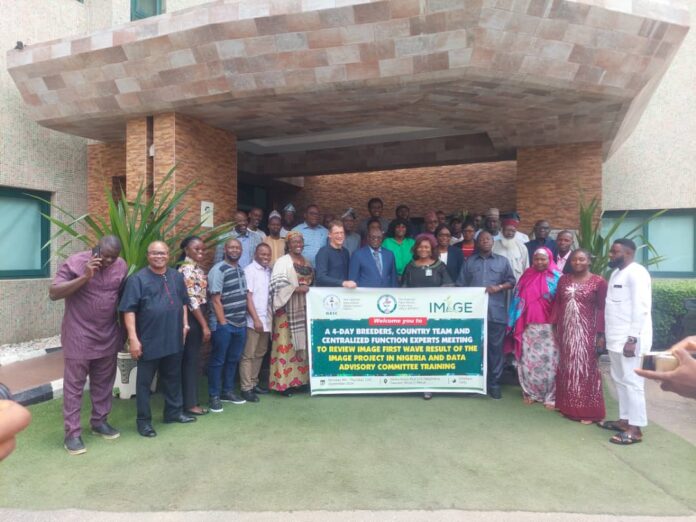…Stressed the importance of genetic diversity in agriculture
…Advocate for improved genetic reference libraries
Experts in the agricultural sector on Monday, emphasized the need for harmonization of gene banks in Nigeria to enhance the country’s agricultural productivity.
The call was made at the opening of a 4-day Breeders Country Team and Centralized Function Expert Meeting, organized by the National Agricultural Seeds Council (NASC) in collaboration with the Nigerian Plants Variety Protection Office (NPVPO) amongst other partners.
The meeting aimed to review the first wave results of the Institutionalizing Monitoring of Crop Variety Adoption using Genotyping (IMAGE) project, which seeks to improve crop productivity and enhance genetic diversity in Nigeria.
Speaking to newsmen, Dr. Ishiak Khalid, Acting Director-General of NASC, stressed the importance of harmonizing gene banks to support the country’s agricultural development.
He said; “Harnessing the potential of our genetic resources requires a coordinated approach. By harmonizing our gene banks, we can ensure that our research institutions are working together to develop improved crop varieties that meet the needs of our farmers.”
Dr. Khalid encouraged research institutions to prioritize research on improved seed varieties, highlighting its impact on farmer yields. He praised plant breeders and crop experts for their achievements, stating that their expertise and commitment have been instrumental in driving agricultural progress.”
Also speaking, Prof. Lucky Omoigui, Seed System Specialist from the International Institute of Tropical Agriculture (IITA), stressed the crucial role of quality seeds in boosting crop productivity.
“Quality seeds are the backbone of productive agriculture, and to increase crop yields, we must ensure farmers receive seeds with the right genetic material. This requires rigorous testing and verification against reference materials.”
Omogui further emphasized the importance of maintaining robust seed banks. he said “A well-managed seed bank is vital for preserving genetic diversity and ensuring seed quality. Continuous use of seeds without replenishment from reserves leads to quality degradation.”
Meanwhile Dr. Folarin Sunday Okelola, Acting Registrar of the Nigerian Plant Variety Protection Office (NPVPO), presenting a paper titled “Crop Survey Results: Nigerian Cassava, Revised Genotyped Crop Survey based on the Cluster Pipeline Bioinformatics Pipeline.” reiterated that the essence of the meeting is to adopt and advise farmers on effective seed systems.
Okelola urged stakeholders to consider opportunities for improving access to quality seeds, maintaining seed purity, enhancing genetic reference libraries, and conducting analysis to characterize genetic entities and unidentified samples
According to him, ongoing and regular analysis based on growers’ reports and genetic features will help understand what farmers are planting.
He however, encouraged research institutions to conduct further studies to comprehend genotyping and the clustering pipeline, which can be effectively applied in dynamic seed systems with uncontrolled variation in outcrossing crops, where genetically diverse Open-Pollinated Varieties (OPVs) predominate.

